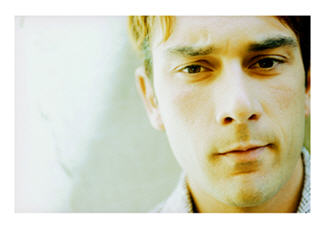I say the words to myself: This is my truth, not the truth. This is my reality, not the only reality. When I affirm that truth is not static, my shoulders relax and my anger begins to dissipate.
 In recognizing the truth of the movable truth, I am more adrift, yet more at ease.
In recognizing the truth of the movable truth, I am more adrift, yet more at ease.
Recently, I was re-reading a post by William Quincy Belle, You Can’t Go Home Again. Musing on leaving marriage via the divorce route, he addresses the many ways in which we change, along with our notions of home.
He also addresses the concept of truth. He reminds us that the truth is not static; there is no one truth, only our perceptions at a point in time, our stories formed around experience.
It is years since my marriage ended in divorce, and in Mr. Belle’s words on evolving truths, I recognize that my views have broadened.
Relearning Truth in Light of Endings
My truth today is not my truth of a decade ago. The truth as lived by my children will not resemble my view of the same events. And each of my sons will have his own version of the truth.
My ex? His view of the truth is his alone; it is based on his perceptions, and altered by the life he has made since. It is no less valid – for him – even if our truths are dissimilar.
One of the realities I’ve come to accept is that he may rarely (if ever) think of our marriage. It would seem only logical; he remarried quickly, his career was uninterrupted, and his finances essentially unaffected. More importantly, the speed with which he refashioned a life – replacing me and our history, such as it was – lingers as part of my hurt, though it may have served as the soft landing that guaranteed he would never feel much sense of loss.
Men and Women, the Divorce Lens
As for those thoughts on my ex, they are exactly that.
Thoughts. Assumptions. I have no “basis” in fact.
 Another assumption? That he has missed his children. I simply can’t imagine it otherwise.
Another assumption? That he has missed his children. I simply can’t imagine it otherwise.
The fact remains – we all exist through the personal lens – whether we recreate the past in memory as a means to abide it, or time and wisdom teach us that neither our impressions nor our declarations are objective.
There is also little doubt in my mind that men and women process emotions differently, communicate across purposes, and act (or act out) accordingly.
There is no doubt in my mind that those who view themselves as the injured party in any painful dispute bear wounds that will color their truth.
Teaching our Children and Ourselves
It’s an interesting challenge – teaching our children about truth and falsehoods, yet conveying that there isn’t a single truth, a “one right way” in most decisions or opinions.
Sure, there are avenues of behavior and accountability that adhere more closely to what we deem morality, or responsibility, or even proper manners. There are also behaviors that conform – or don’t – to legality, which is another discussion.
But I stand by my belief that there are few absolute truths – only words, actions, and omissions that may bubble up out of emotions we can’t control or comprehend. Then there is the express desire to inflict harm, or behavior fueled by Self above all else.
These are not the same.
Living With Truths – and Doubts
To live with ourselves – we tinker and justify, we expand and accept, we constantly reshape our malleable and movable truths.
We also manage our equally pliable doubts.
Admitting that we may not see all sides of a situation doesn’t mean we forfeit a clear eye, or the fundamental accuracy in our evaluation. But it remains just that – our personal evaluation.
We don’t always know the facts, the feelings, the unconscious motivations of another much less ourselves. We exercise bias in everything. Perhaps we should learn from that.
You May Also Enjoy
I have always believed the truth is somewhere in the middle. After a few years of doing mediation for divorcing couples, there are always three sides. Each of the participants and then the third eye somewhere in between. That is the same for kids too. I think as a person who was married for 20 years I hardly ever (as in I can’t remember the last time) I thought about my ex. My kids are grown men now and they worked it out themselves over the years. They see him for what he is and was and recognize that I am a saint. 🙂 If I had taken a voodoo doll and set my ex upon a course that I could have controlled after we divorced I would not have been able to come up with all the things he has Done to himself to make his life what it is today. I could never imagine how bad his life has turned out. So sad really. But, my sons tried and even though they were 15 and 17 and had their dad in their lives before the divorce he is not there for them at all and they realize he is what he is and not what he was. Divorce is hard on everyone but in the end they show the truth about the parties in how it continues after the divorce.
This reminds me of a quote I love: “Women are repeatedly accused of taking things personally. I cannot see any other honest way of taking them.” ~Marya Mannes, writer
She’s right–everything we do and see is through our own personal lens, which is, of course, skewed.
Yes, when it comes to personal truth, everyone has their own point of view. And time can create a new perspective. Create a little distance. Soften things. Help us to learn – and grow.
I don’t believe in “time heals all wounds,” but I certainly agree with you, Robin, that time and distance can help us gain additional perspectives.
Simone Weil once observed, “Love is a direction, not a state of the soul.”
Same with truth?
Perhaps so, Wolf.
You hit a lot of good points here. My truths often vary from others, but it doesn’t make any of us wrong. I’ve found my truth to have changed through the years as I have grown in time. As I continue to change my truths do so along with me. Thank you for giving me much to think about.
I am continually reminding my self that people who feel good about themselves are generally kind, and if confronted with painful implications of their actions generally apologize and mean it. While all our human perceptions are subjective and any claim on “truth” more philosophic than legalistic, if love is a direction, as Wolf P suggests, then let’s head in that direction.
Oh wow — this is a biggie in my life. I’m constantly haunted by my ex’s words: “You have your truth, and I have mine. One day, I’ll be telling the kids my version, and we’ll see what they think about you then.”
The problem with this: revisionist history. I honestly believe that he believes his version is the truth, the whole truth and nothing but the truth. He holds it over me like a looming guillotine that will one day fall, beheading “my truth.”
However, I know what happened, and that is the truth. I did nothing to deserve how he ended our marriage, other than believe his lies and/or half-truths. The other phrase that haunts me: “There are two sides to every story.” Of course he has his “side,” but the overriding problem in our marriage was that he never shared it with me!
So while I acknowledge that every truth has its filter, I also know that revisionist history tends to rewrite the truth. And the threat of him sharing that version with our children to justify his actions absolutely infuriates me!
Oh, Mikalee, I do understand what you’re saying. Thus my statement about retaining your own clear eye and accuracy. There’s a difference between revisionist history and one’s personal lens, isn’t there.
Sadly, there’s little we can do about what someone else shares as “the truth.” But it’s infuriating (as you say), and also damaging to children. One way or another it puts them in a situation they don’t deserve.
I hear you, and I get it.
I deeply long to have a clear eye, as you phrase it, and evaluate “the truth” wisely, so that I can make good decisions in my life. Knowing that truth, and doubts, are pliable is rather, well, frightening, because I want to live in a kind of truth. I like the idea of it being a path towards love, or maybe I would use the word compassion. Is compassion a personal evaluation, too? Or is there something pure at its center, something universal?
In the midst of my own divorce, and the inevitable anger and frustration that comes with the need to get divorced, I’m seeking ways in which to view truth(s) compassionately. It’s tricky work, and I don’t have it figured out.
Thanks for sharing your perspective on this – great food for thought, and I appreciate it.
That clear eye takes a great deal of time, and is assisted with inputs beyond our own eyes. I might add that the divorcing process is one thing, with its shades of anger and hurt. But the aftermath of divorce – two years out, three years out, longer – that’s an opportunity for partners to “redeem” themselves by acting in civil and respectful fashion. I find those years to be more telling (and important) in finding our truths.
It’s all tricky work, yes. But compassion tends to help everything, doesn’t it? At least – balanced with pragmatism – especially if there are children.
Thank you for stopping by, Pollyanna. I hope you will again.
“One of the realities I’ve come to accept is that he may rarely (if ever) think of our marriage.”
I believe this to be true, but I’m FAR from accepting it. It’s been ten years this month, and I’ve taken three steps forward and two steps back. At least there were no children involved.
@rushnhoney, I understand. It can be very hard, for a very long time.